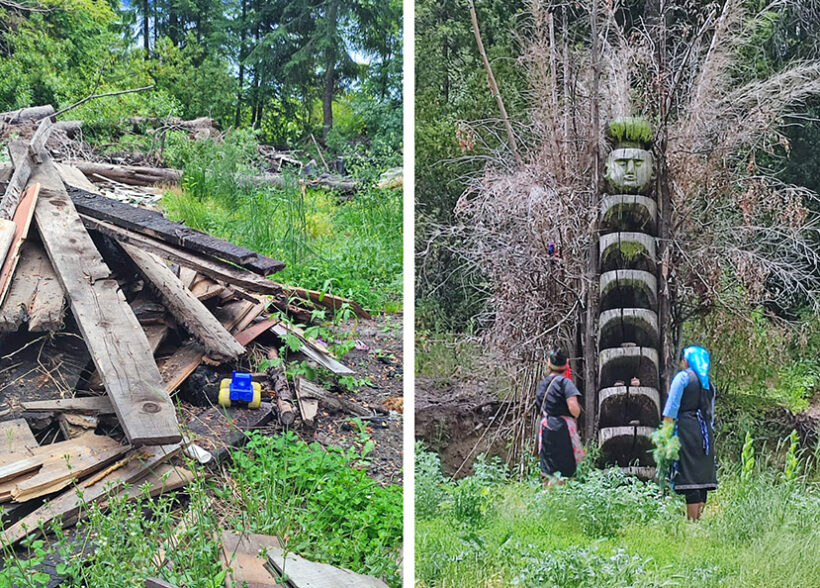The Mapuche people need to live in their territory to exist. This is how it is for the Lof Lafken Winkul Mapu. However, and despite being an enshrined right, according to National Parks, judges and prosecutors functional to economic power, this is not viable.
The talks held with the Argentine government to resolve the conflict have turned out to be a farce. In the last one, on 1 June 2023, the recognition of the rewe as sacred territory was achieved, and the return of the machi and her closest collaborators was agreed. After six months of waiting for the agreement to be formalised in writing, on 5 December, Betiana travelled to Buenos Aires, where she found the door of the INAI closed, refusing to sign.
Back in Bariloche, with the new government in place, the communities expressed their preoccupation regarding the uncertainty of the machi’s return to the rewe.
On the 28th of this month, we accompanied her to the territory to visit the rewe. It was devastating to see the signs of outrage: what were once her rukas are now piles of burnt wood, thrown with the remains of toys from her pichis. Everything is destroyed, abandoned.
A strong feeling comes over me: how can a human mind plan so much cruelty? In this space a community found its meaning and harmony! It is incomprehensible!
The lamuen (sisters) look for the lawen (medicinal plants), light the fire and perform their ceremony.
The following day, 29 December, in the Civic Centre of Bariloche, several Mapuche lof (communities), environmental and artistic organisations, trade unions and alternative media held a rally, requesting the reinstatement of the Anticianuro Law 3981/05, which was repealed 12 years ago. This law was the result of years of struggle, which is why it is considered by activists in the region to be a popular victory that put a stop to mega-mining in the province.
On this occasion, the machi Betiana took the floor and recalled that after more than a year after the brutal eviction, her community Lafken Winkul Mapu is still outside their territory and the rewe is militarised. After the desert campaign, it is the first rewe lawen-medicina with a machi, in Patagonian territory, which is why it has such a special meaning for the Mapuche people. It was erected to bring healing to the Mapuche people and to all the people who believe in their treatments with medicinal plants.
That rewe gives us life,” says the machi. Our health and that of our pichikeche (children) is at stake. Defending the territories is what mobilises us as Mapuche. Our spirit is connected to the land, to each space. Defending the territories is defending the water that comes down from them, the same water that we all drink. Our struggles are united.
He then ends by calling for a Nguillatun on 14 January at 6 am in Diarco, to be held in the territory to request the return to their sacred ceremonial place.
Rights are won by putting the body into action. That is the resistance of the Lof Lafken Winkul Mapu in the territory. Rafita Nahuel, murdered for building it; Jessica Bonnefoi, still in house arrest; other members of the loft with arrest warrants, know this well, and that is why they continue to live under the harassment of perverse and ignorant capitalism and a society that does not recognise their original roots.






